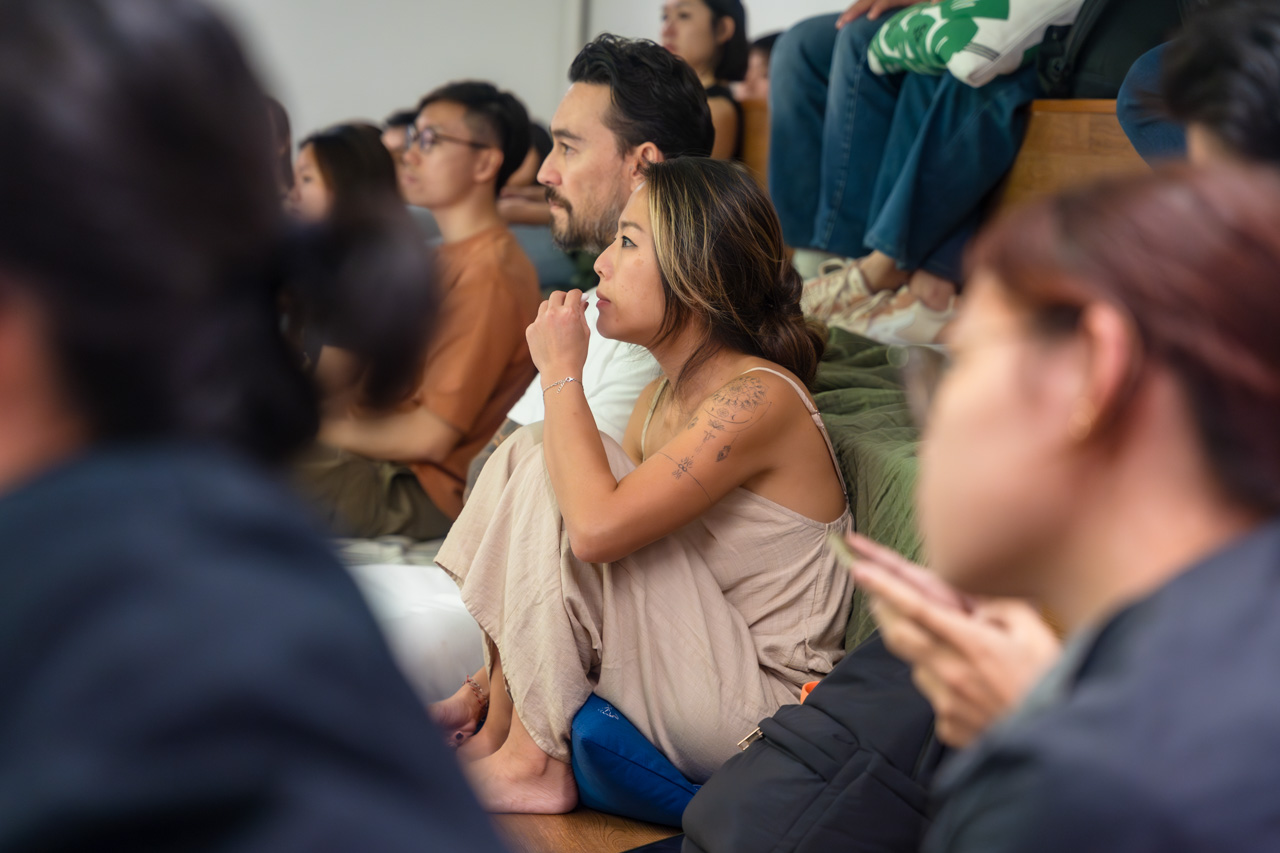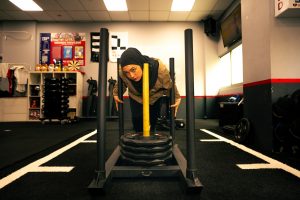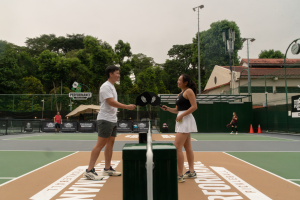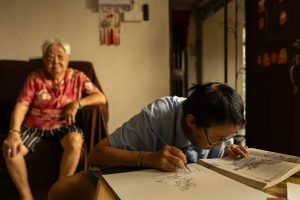All images by Nicholas Chang for RICE Media
The holiday season is a time to unwind, reconnect, and bask in the glow of indulgence. But let’s be honest; most of us are already doing that, even at work. No shame in wayang-ing the December blues away.
Yet, for many, it has become another chapter in the relentless pursuit of self-optimisation. From crafting Instagram Reel-worthy Christmas dinners for friends to charting the perfect wellness schedule before the New Year, the pressure to maximise every moment (even leisure!) has turned a time for reset into a chore.
At RICE Media’s recent Alt Ctrl Health panel discussion on self-optimisation, experts dissected the science behind our obsession with self-betterment. Dr Shravan Verma and Dr Arun Jayaraj shed light on the neuroscience of habit formation, while fitness trainer and influencer Tyen Rasif explored the social media pressures of achieving better health.
These discussions framed a poignant question: In an age driven by data and online influence, can we truly let go of the urge to improve, even during the holidays?
The Science Behind Self-Optimisation
Self-optimisation taps into the brain’s reward systems, where each incremental improvement—a better step count, a longer meditation streak—triggers a dopamine hit. Habit-forming apps and wearables amplify this, quantifying our lives and encouraging us to chase endless metrics.
While these tools promise to help us live better, there’s a point where people might be overwhelmed with data. And what’s the point of all the information we have at hand if we don’t do anything about it? From fitness trackers monitoring every step to sleep apps analysing your rest, these technologies offer data-driven insights that can feel more like constant scrutiny than empowerment, Dr Arun remarks.
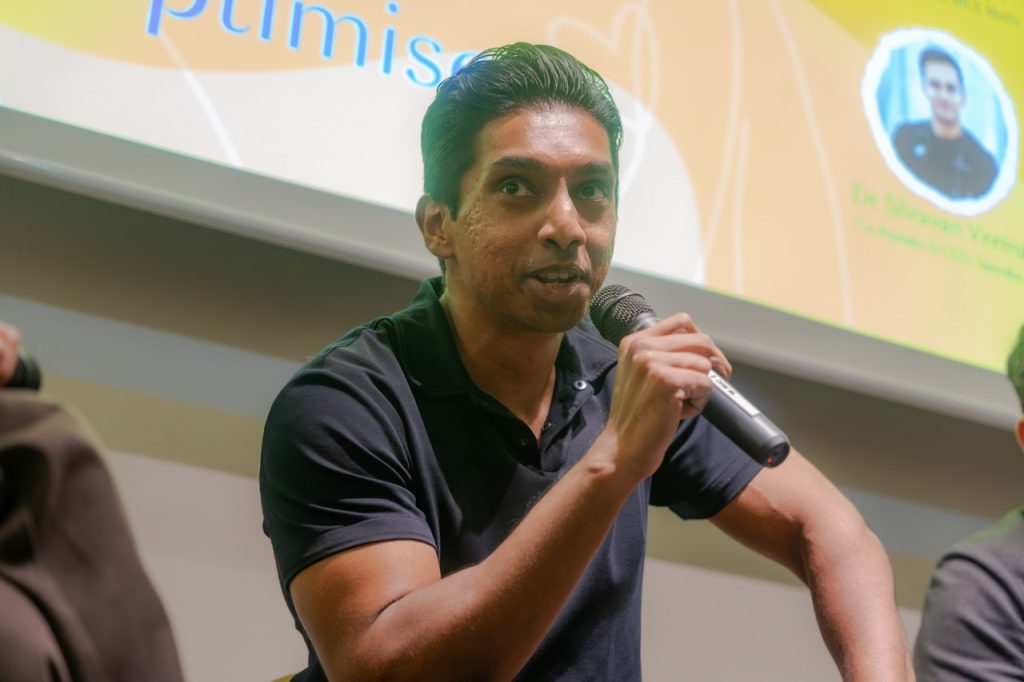
Ironically, this drive can intensify during the holidays. The season is no longer about rest but about hacking our way to a perfect break. Fitness challenges are designed to undo festive decadence before it even happens.
This culture of optimisation can feel particularly burdensome in Singapore, where the pressure to excel are deeply ingrained. Even our downtime must serve a purpose.
Adding another layer to this anxiety is how technology intertwines with our psyche, Dr Arun noted. The constant tracking and reporting of our habits create a feedback loop that conditions us to seek validation from data. But what happens when this validation replaces genuine satisfaction?
The Commodification of Wellness
The holiday season has become a breeding ground for wellness consumerism. Biohacking gadgets, organic food, and mindfulness subscriptions promise to help you achieve peak performance just as the calendar resets.
But these things often come at a cost that not everyone can afford.

As Tyen pointed out during the panel, this privilege gap needs to be addressed in Singapore. On the surface level, the ability to prioritise health often depends on socioeconomic status, but Dr Arun believes that things can be different. People don’t actually need gym memberships to stay fit, he says.
Dr Verma, a veteran in smoking cessation programmes, highlights another dimension of the conflict between access and the pursuit of health: the lack of education, oversight, and regulated alternatives forces many to turn to unhealthier, unregulated options, such as unapproved wellness supplements or illicit vaping products.
This is particularly evident in areas like smoking cessation. Countries like New Zealand and the UK have adopted policies to regulate and promote safer alternatives. Such products are only available in the black market in Singapore.
The biggest concern is that these black market products are unregulated, and there are no standards in place to ensure that they are safe for users who choose to use them. The switch from cigarettes to such unregulated alternatives undermines public health objectives of reducing smoking prevalence—it could be dangerous if these illegal devices malfunction or if it contains toxic chemicals.
Evidence from countries that have embraced regulation paints a clear picture, he offers. Nations like the UK have seen greater declines in smoking prevalence compared to those maintaining outright bans. By offering informed choices and regulated alternatives, these countries have enabled better health outcomes without driving users to unsafe options. As public health narratives continue to evolve, Singapore could consider and adapt (or adopt) the best practices that work best for us.
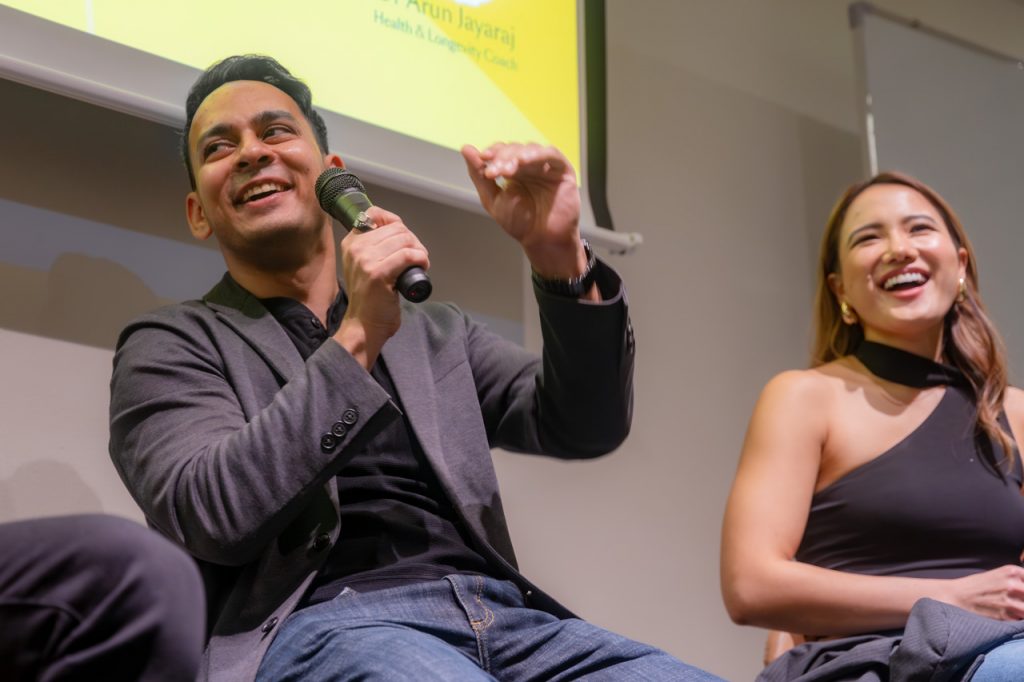
This evolving approach to public health becomes even more crucial during the holiday season, a time that highlights privilege and accessibility gaps in wellness trends. While some indulge in spa days and clean-eating meals, others struggle with systemic barriers that make even basic wellness unattainable.
In this context, wellness risks alienating the very people it aims to uplift.
The Cost of Constant Improvement
The irony of self-optimisation is that it often undermines the well-being it promises to enhance.
Research has shown that constant striving for improvement can backfire, leading to mental exhaustion, anxiety, and even physical health issues as people push their limits in the name of progress.
The holiday season, ostensibly a time for rest, becomes another opportunity for overachievement. What have we become when leisure—be it vacations abroad or family gatherings—is measured against impossible standards?
This is where the holiday paradox becomes most evident: the season invites us to relax, but the cultural narrative demands we fine-tune our relaxation. It’s the scaled-up version of Sunday Scaries—it leaves little room for genuine rest when our minds are fixed on preparing for the next quarter.
Social media’s curated snapshots of idealised celebrations fuel endless comparison and self-doubt. Instead of savouring the moment, many become fixated on how their experiences stack up. That tinge of envy—when your gathering doesn’t look as lit as your friend’s—is the sign it’s time to put that phone away.
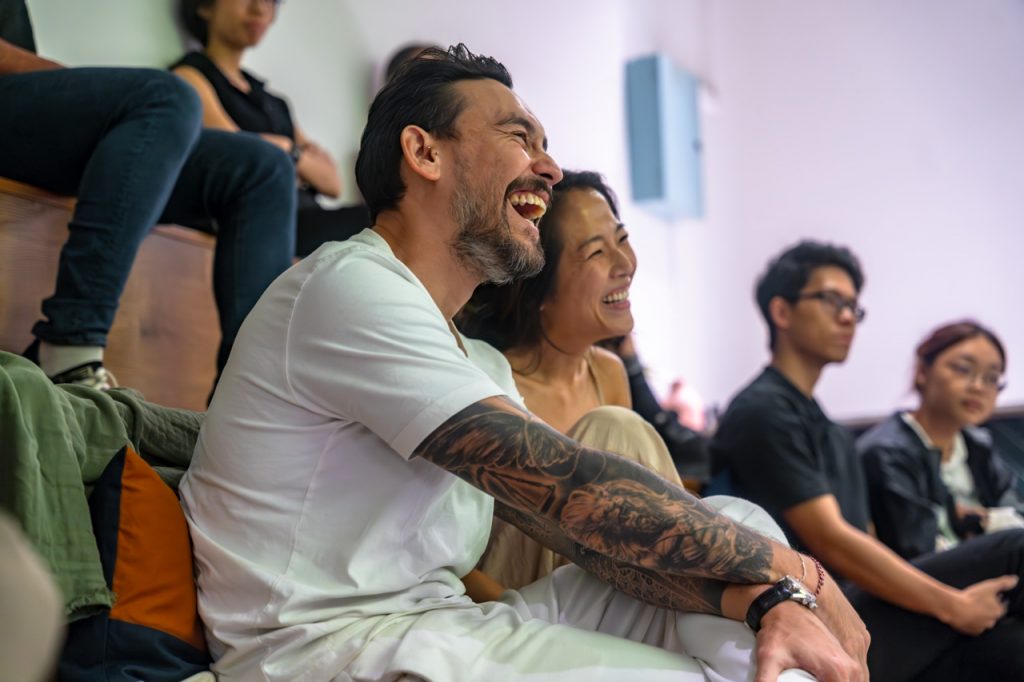
A Season to Let Go
How do we reclaim the holiday season from the relentless grip of self-optimisation? Letting go isn’t easy when guilt lingers like an unwelcome guest at Christmas parties. Perhaps the first step is embracing the idea that ‘good enough’ often outweighs the pursuit of perfection, especially during the holidays.
Embracing simple joys—like gorging on food, imperfect traditions, or rotting your days away—can be a refreshing antidote to year-end pressure. Rest doesn’t need to be earned. Wellness doesn’t require constant vigilance.
And honestly, who’s counting steps when you’re five beers in, tearing through leftover roast beef? The end-of-year season is the one-time indulgence that feels like a deserved act of rebellion. Go ahead, let loose, and pick it all back up again in 2025.
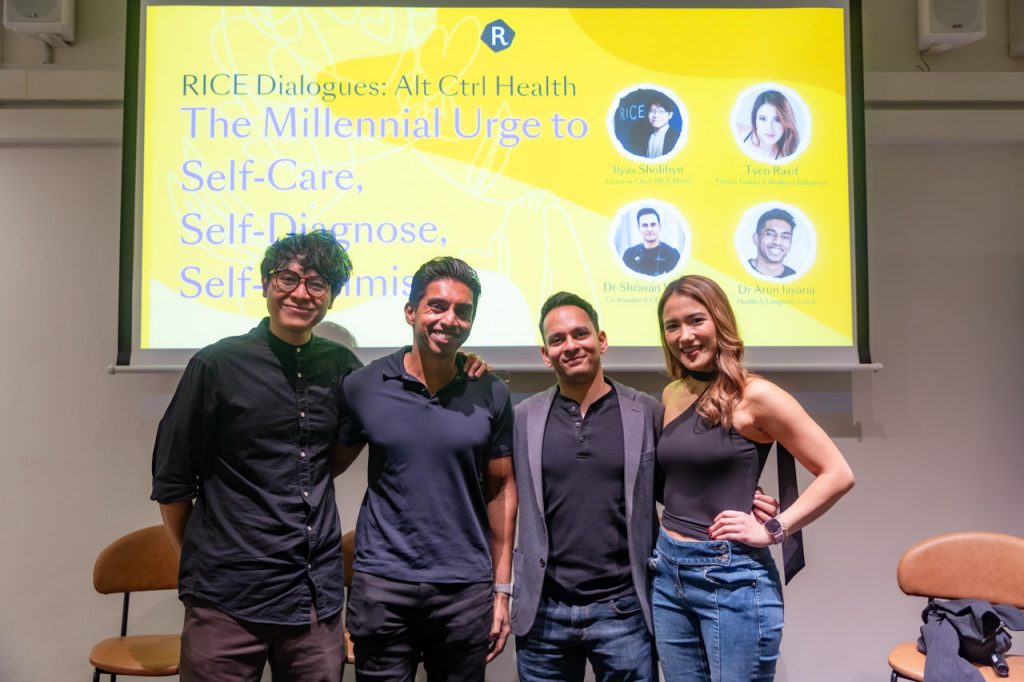
Taking small, deliberate actions—like leaving wearables at home, disconnecting from social media, or simply saying no to over-scheduling—can help create space for genuine relaxation.
As the year winds down, perhaps the greatest act of self-optimisation is choosing not to optimise at all. The holiday season should be a time to pause, not perfect. It’s a chance to embrace imperfection, to focus less on metrics and more on moments.
Ultimately, pursuing your best self shouldn’t come at the cost of simply being yourself.

